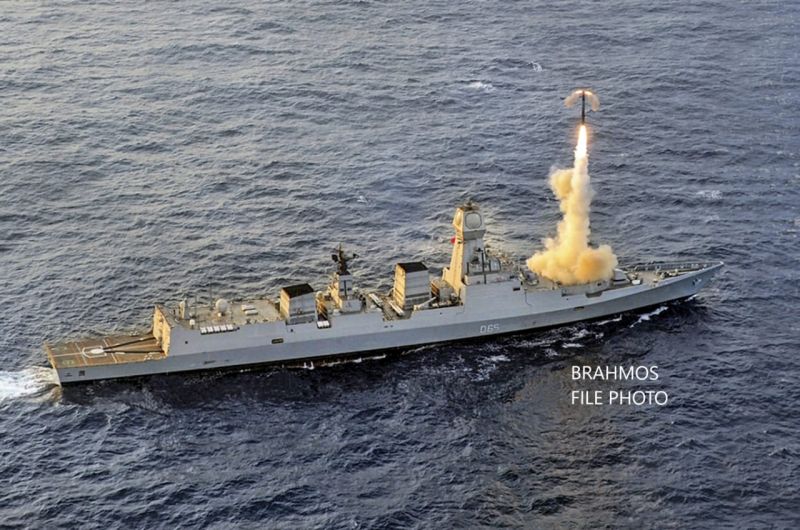Visionary Generals – shaping modern warfare
By Brig Narender Kumar (Retd)

The great captains have changed the outcome of the war by altering the character of warfare. Today the academicians and theorists are defining new wars, such as cyberwar, hyper war, hybrid war, non-linear war, asymmetric war, ambiguous war, fourth/fifth generation wars, non-contact war, new generation wars and grey zone conflicts.
But the issue is that there may be theory and detailed explanation of new generation wars but in reality, the character of war is changed by innovative and pragmatic military leaders who understand how military and non-military means are applied to achieve political and military objectives of the war.
No nation can afford long protracted and attrition war, thus few military generals have not only altered the method of warfighting but achieved spectacular results without allowing spill-over effects on their homeland.
The modern military leadership must acquire acumen to understand the political objectives of the war, use of technology, employment of regular and irregular forces in a battlespace that is netcentric, multi-domain and multi-front.
Some theorists may give it a name of hybrid war or grey zone conflict, but in reality, it is the highest form of combat manoeuvre and cerebral contest of strategy. Ultimately, a general in war is expected to defeat the enemy’s strategy by positioning their resources in an advantageous position.
There are few generals in the contemporary period of “no peace no war paradigm” who have altered the character and even the outcome of wars without risking full-spectrum conventional and nuclear wars. Russian army chief General Valery Gerasimov is the first practitioner of hybrid war (Russians call it new generation war) that the world has seen.
He is fighting the war in Syria against the US, Turkey, Ummah led by Saudi Arabia and non-state actors including the Islamic State of Iraq and Syria (ISIS). He is also fighting a classic grey zone conflict in East Ukraine with “Little Green Men” (Irregular Militias) as front line warriors. His hands are also full with ongoing conflicts in Libya and Yemen. He is also contesting NATO and the US in the Baltic Sea.
He is managing regulars, irregulars, Special Forces, cyber warriors, space assets, electronic warfare assets, the battle of narratives, elements of political and non-contact war. It certainly requires intellect, understanding of political objectives of these wars, adaptation of technology and resource application in a highly complex battlespace spread from Africa to Asia and Europe.
Of course, he must be assisted by the various force commanders but what is of significance is his ability to grasp, geo-politics, geo-strategy, use of the military as a tool of foreign policy and a predominant stakeholder to ensure a rightful place for Russia in the global order. He is a strong proponent of a school of thought that a military strategy is a tool of foreign policy.
The second name that needs to be studied carefully is Major General Qassim Sulemani of Iran. He networked regulars, irregulars, non-state actors and Special Forces to fight wars/ conflicts in Iraq, Syria, Yemen, Afghanistan, Lebanon, Gaza and Saudi Arabia. He understood the significance of synergising regulars and irregulars in a grey zone. He used military and non-military assets in a borderless geographical battlespace.
It was his intellect and military acumen that he could propel Iran as a major regional power in West Asia. Iran with its Quds Force could challenge the US in the Persian Gulf as well as in Syria. He mastered the art of hybrid war on land and sea. His operations were far ahead of time and even beyond the comprehension of the theorists.
The role of Turkish military leadership, under the command of Gen Yasar Guler, cannot be undermined, they are fighting on multi-fronts each with different strategy and model. Turkey is fighting wars in Syria, Yemen, Azerbaijan, Libya and maritime conflict with Greece. It is almost in direct conflict with Russia in Syria and actively supporting many non-state actors in the African continent.
The strategic analysts had commented that Turkey is committing a mistake of strategic outreach, however, it is evident from their actions that Turkish military knew how far they can go to play a dominant role in West Asia and North-Africa.
These Generals have steered their countries through a muddled geo-strategic environment where there is neither perpetual peace nor permanent war. Common about these generals is that they never pursued decisive victory in true Clausewitzian model. The victory was deemed in ensuring that the enemy did not achieve their political and military objectives.
General Gerasimov has ensured in Syria that Bashar al-Assad remains as President of Syria and Russian presence in the Mediterranean Sea remains unhinged. Russian Navy operates a military facility at Tartus, where Russia intends to develop military facilities so that their presence is maintained in West Asia and the Mediterranean Sea.
Russia has ensured in Syria that Turkey and the US are unable to dislodge them from Tartus naval base and Latakia air base from where Russia can operate their naval and air fleets to maintain a presence in the vicinity of West Asia, Africa and the Mediterranean. Russian presence in the eastern Mediterranean ensures that access to the Black Sea remains open for Russia. It is important to highlight that diplomacy or political clout of Russia could not achieve what it has achieved through military strategy executed by brilliant generals.
It is difficult to decode the strategy and define the DNA of the new generation wars.
Those who remained dependent on the use of conventional force have failed in their strategy. All three examples mentioned above indicate that character of war is changed by these military leaders to keep the threshold of conflict below conventional war. They have been careful to keep the response less than war and displayed that there is space for response below the conventional and nuclear threshold.
They have relied upon technology, irregulars, militias and Special Forces seamlessly to achieve military and political objectives of the war. These military generals have displayed high intellect and appetite to experiment with innovative use of elements of new generation wars (Cyber, space, electronic, autonomous weapon system, non-military means and non-contact wars).
There is a great lesson for India and its military leadership. No country has experienced such a vast variety of internal and external security challenges as experienced by the Indian Army.
The Indian Army is probably the most experienced in the world in conventional and sub-conventional conflicts. But the Indian military leadership has shied away from defining new and innovative warfighting methodology in conventional and sub-conventional arena based on their experience.
The Indian military has remained more traditional and conventional in their approach that can best be defined as a risk-averse approach. Second, an important lesson is that the military in the current milieu is not subordinate to diplomacy. Rather military today is stepping in even before the diplomacy. It is military diplomacy that is setting the discourse in new geostrategic reality.
Russia is a key player in Syria and Ukraine not because of diplomacy, but because of military prowess and military leadership willing to play a greater role in geostrategic events.
Third, the issue is that military leadership should be adept in the employment of regulars and irregulars in a seamless manner instead of always reaching to the conventional response when called for to protect vital national interests. Employment of “Little Green Men” by Russia in east Ukraine is part of hybrid war avoiding direct confrontation with conventional military forces.
Threat from China - Pakistan strategic nexus is here to stay. As a consequence, military leaders must be adapted in use of cyber, space, electronic, irregulars and Special Forces innovatively. It is not a contest for a decisive victory in a conventional conflict, it is the defeat of adversary’s strategy and denial of an arbitrary change of status quo.
Modern warfare is based on the idea of mind as the battlespace, as a result, this new-generation battlespace is to be dominated by information and psychological warfare.
Russia used soft instruments to shape the operational environment and with less than 10000 militias and few battalions of naval infantry, they were able to break 190 Ukrainian military bases without major bloodshed. The Russian military leaders are deft in the use of strategic communication that Indian military leadership need to develop this skill.
Military generals will not matter if they are unable to create options for diplomacy to negotiate from the position of strength. To do so Indian Army generals will have to master the art of new generation wars to create stable peace with China and Pakistan.
*Author is Indian Army veteran and visiting Fellow, Centre for Land Warfare Studies. Views expressed here are personal.



